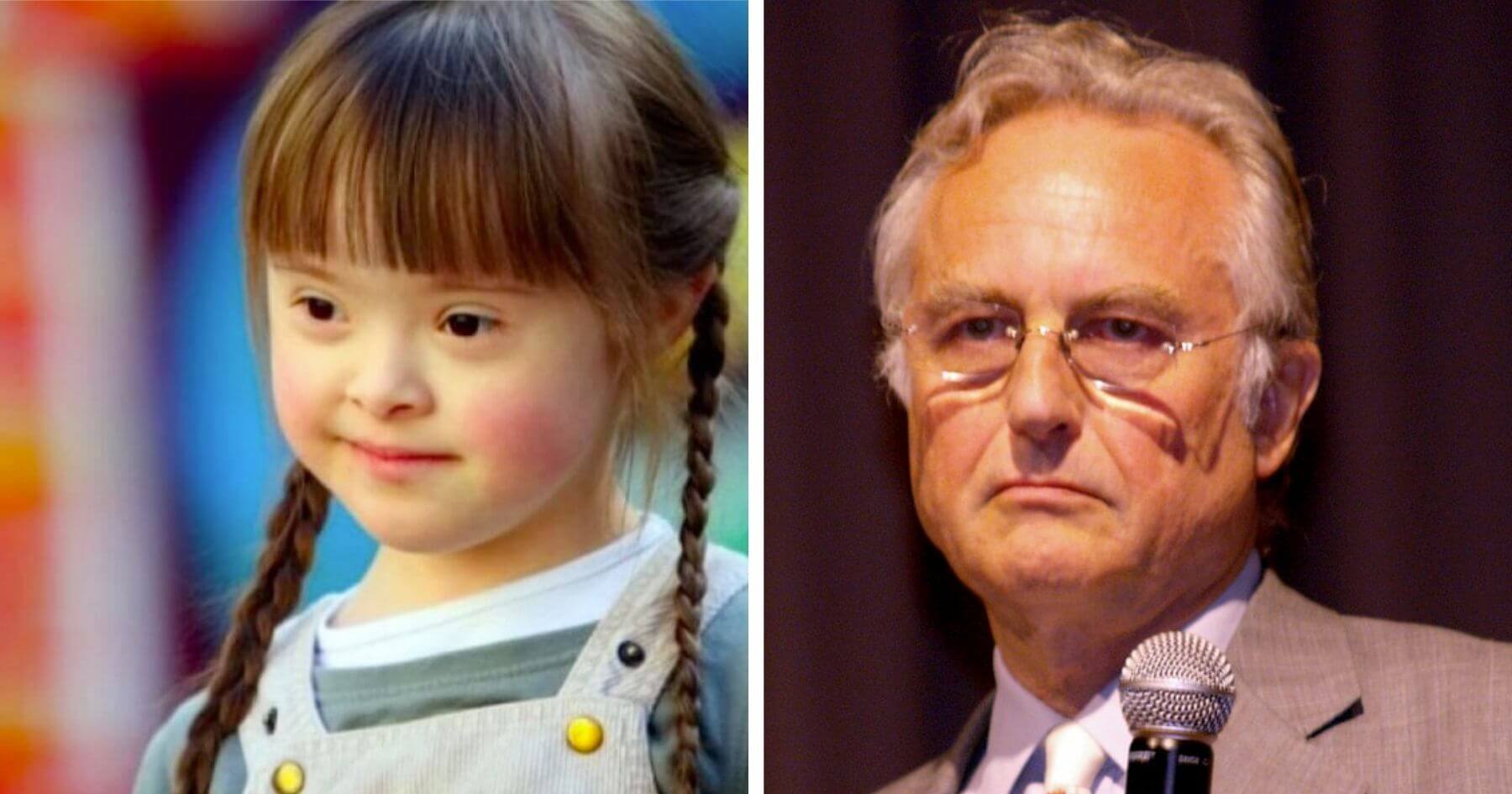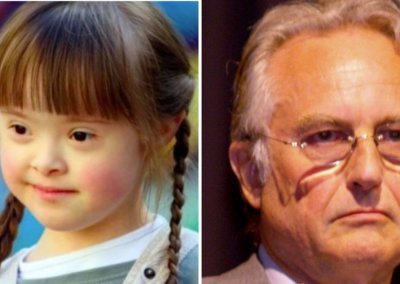Over 2,700 people with Down’s syndrome and their families have signed an open letter to Richard Dawkins’ publisher Penguin Random House calling on them to drop him for his offensive comments on people with the condition.
In an interview with Irish radio host Brendan O’Connor on 11 May, geneticist and commentator Professor Richard Dawkins claimed that it is “wise and sensible” to abort babies who have either Down’s syndrome, or are deaf or blind, to “increase the amount of happiness in the world”.
In 2014, Dawkins was criticised over a Twitter exchange in which he responded to a user who said she would be faced with “a real ethical dilemma” if she became pregnant with a baby with Down’s syndrome. He replied: “Abort it and try again. It would be immoral to bring it into the world if you have the choice”.
In an extended statement in his website, Dawkins expanded: “If your morality is based, as mine is, on a desire to increase the sum of happiness and reduce suffering, the decision to deliberately give birth to a Down baby, when you have the choice to abort it early in the pregnancy, might actually be immoral from the point of view of the child’s own welfare”.
O’Connor, who himself has a child with Down’s Syndrome, prompted Dawkins’ fresh remarks after asking him whether he still held the same views as those he expressed in 2014, saying: “You are speaking to someone who did bring someone like that into the world”. He went on: “I would accept that fact and I wouldn’t judge anyone’s choice about that, but why is it immoral not to abort it?”
O’Connor continued: “How do you know that it increases the amount of suffering in the world to bring in a child with Down’s Syndrome?”
Dawkins responded that he “…didn’t know it for certain. It seems to me to be plausible that… if a child has any kind of disability then you probably would increase the amount of happiness in the world more by having another child instead”.
When O’Connor pressed Dawkins on whether he had any reason for knowing that, Dawkins admitted he did not ‘intimately’ know anyone with Down’s syndrome, and denied that he had any “direct evidence” to support his statement.
When asked what other disabilities he would screen out, Dawkins responded: “I think deafness, blindness…when you have the choice [..] I think it would be wise and sensible to abort a child which had a serious disability”.
People with Down’s syndrome and their families call out inaccuracy and prejudice
Over 2,700 people with Down’s syndrome and their families have signed an open letter to Penguin Random House’s Chief Executive Officer Markus Dohle, asking him to immediately end the organisation’s commercial relationship with Dawkins in light of his comments.
The letter, organised by grassroots campaign group “Don’t Screen Us Out”, highlights how Dawkins’ comments are a flagrant breach of Penguin Random House policy: “As a company, they make it clear that they “celebrate and actively promote diversity and inclusion in all its forms, including and not limited to the nine protected characteristics cited in The Equality Act 2010” including “disability”. They go on to say that “It is not acceptable to make dismissive or hostile remarks about a person on any basis or to make assumptions about someone’s lifestyle, interests or abilities”.”
The letter also highlights the inaccuracy of Dawkins’ claim that people with Down’s syndrome increase the amount of suffering in the world.
“Studies have consistently shown that people with Down’s syndrome and their families report a high level of satisfaction with their lives. A 2011 study published by the American Journal of Medical Genetics showed that nearly 99% of people with Down’s syndrome indicated that they were happy with their lives. It also found that over 96% of brothers and sisters that responded to the survey indicated that they had affection toward their sibling with Down’s syndrome, and 94% of older siblings expressed feelings of pride. In 87% of the families surveyed, everyone expressed feeling love for members with Down’s syndrome, who in turn expressed love for the other family members”.
Don’t Screen Us Out Spokesperson, Lynn Murray, whose daughter Rachel has Down’s syndrome said: “By saying what he has about people with Down’s syndrome, Richard Dawkins is offending a whole social group in one fell swoop, perpetuating old stereotypes. His opinions by his own admission are uninformed”.
“My daughter has Down’s syndrome, she is 21 now and it’s been a privilege to see the positive effect she has had on so many people over the years. She has enriched lives”.
“He upset myself and many other people in 2014 when he said it was ‘immoral’ to give birth to a child with Down’s syndrome. Years later, when he has had much time to consider his opinions, he still persists with his discriminatory, inflammatory narrative, declaring that a specific group of people, just by their very existence make the world a worse place. Down’s syndrome isn’t a tragedy. Richard Dawkins has no right and no mandate to say otherwise. His publishers should stand with people with Down’s syndrome, uphold their own equality policies, and cut ties with the Professor whose uninformed opinions about Down’s syndrome are also out of sync with today’s public standards of equality and diversity”.
Disability-selective abortions in the UK
In 2019 there were 3,183 disability abortions across England and Wales. 656 occurred following a prenatal diagnosis of Down’s syndrome.
Since the introduction of new ‘non-invasive’ prenatal screening tests, there has also been an increase in the number of abortions of babies prenatally diagnosed with Down’s syndrome. Figures published in 2019 show that the number of babies born with Down’s syndrome in the UK has dropped by 30% in NHS hospitals that have introduced the new tests.
In the UK, abortion is currently available up to birth for unborn children found to have disabilities. Máire Lea-Wilson from Brentford, West London, whose two-year-old son Aidan has Down’s syndrome, together with Heidi Crowter, a 25-year-old woman from Coventry who has Down’s syndrome, are currently challenging the UK Government over the disability clause in the current law. Their landmark case will be heard by the High Court on 6 July.
Right To Life UK spokesperson, Catherine Robinson, said: “It is wonderful to see so many people with ‘intimate’ experience of people with Down’s syndrome, and people who themselves have the condition, stand up to Dawkins’ inflammatory and inaccurate remarks”.
“The evidence shows that people with Down’s syndrome and their families are just as capable of happiness and fulfilment as the rest of society; it is sad that Professor Dawkins cannot or will not acknowledge this”.











